#asserting boundaries
Text
I am so proud of you for every time you have practiced asserting your boundaries and saying no. You deserve respect and you deserve compassion.
#mental health#ed recovery#suggestions#self love#anxiety#depression#boundaries#setting boundaries#asserting boundaries#saying no#consent#loss of consent
4K notes
·
View notes
Text
The tough thing about boundaries is that it’s not enough to state them, you have to enforce them.
I think some folks see “setting boundaries” as a kind of magic talisman to influence other people’s behavior. “I’ll tell you what I need or can’t accept, and you will act accordingly.” And sometimes that’s what happens, and that’s great! But if the other person disregards your stated boundaries, it doesn’t mean setting boundaries didn’t work.
Because boundaries aren’t about others’ behavior, they’re about your own. If the other person’s behavior doesn’t change, then yours has to. “Please don’t discuss [x topic] with me” is a request. “If you continue to talk about [x topic] then I will end this conversation/hang up/leave” is a boundary, which you must then enact. The point is less about stopping the other person (although that’s ideal) and more about protecting yourself. And you have to be committed to protecting yourself, because no one else will be.
You have to be so committed that you’re willing to tolerate other people being hurt or angry or uncomfortable. You have to accept that some relationships might change. You have to hold onto the idea that it’s all right for them to change, because the way they were before was hurting you, and you deserve to not be hurt. You gave them a choice: maintain a relationship or keep doing the thing that hurts you, and they chose to keep hurting you, so if the situation is now awkward or unpleasant that was because of their choice. Enforcing boundaries means deciding that if someone is going to feel bad here, it need not be always and only you.
There is no magic formula that will make other people treat you kindly and respectfully. But you can learn to treat yourself with kindness and respect. That’s what enforcing a boundary is.
#boundaries#assertiveness#the real self care was the friends we dropped along the way#life is too short to spend with people who make you feel bad#you won't find the people who respect your boundaries#until you stop wasting energy on the people who don't#you can survive people being mad at you#i promise
11K notes
·
View notes
Text
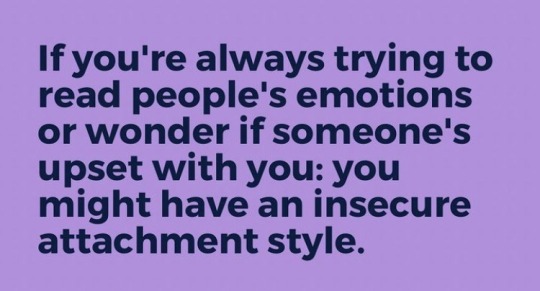


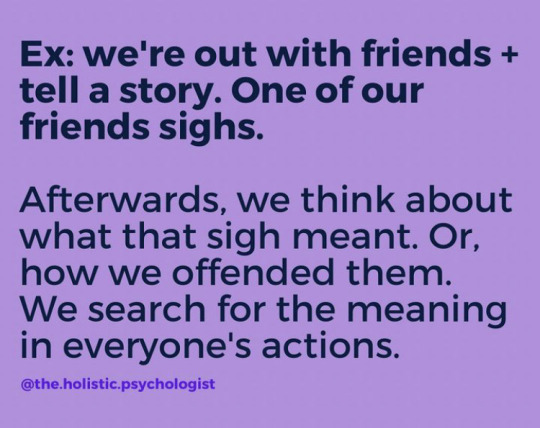

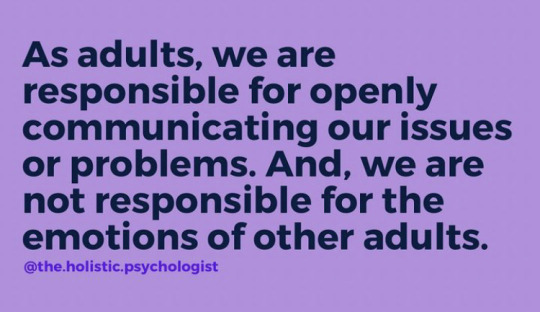
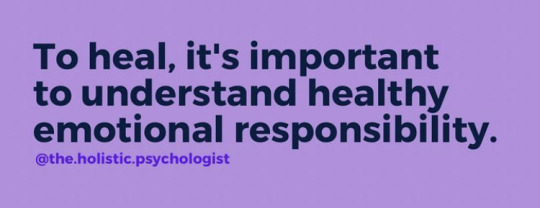
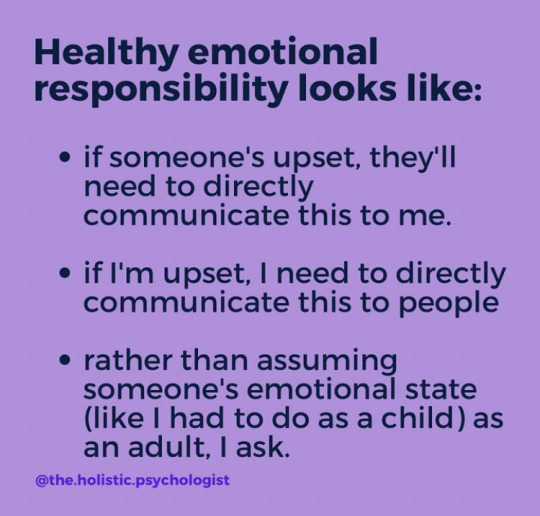
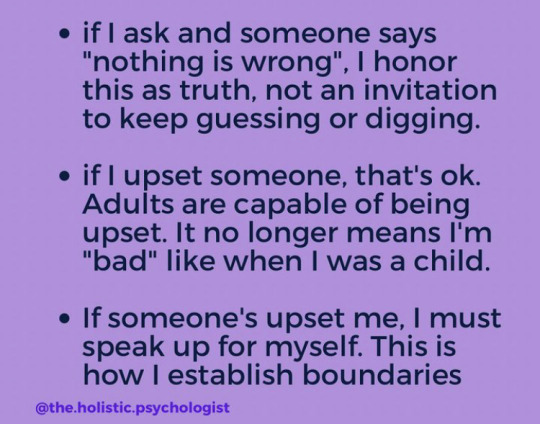
#mental health#insecure attachment#insecurity#dysfunctional family#childhood trauma#assertiveness#recovery#healing#healthy boundaries
1K notes
·
View notes
Text









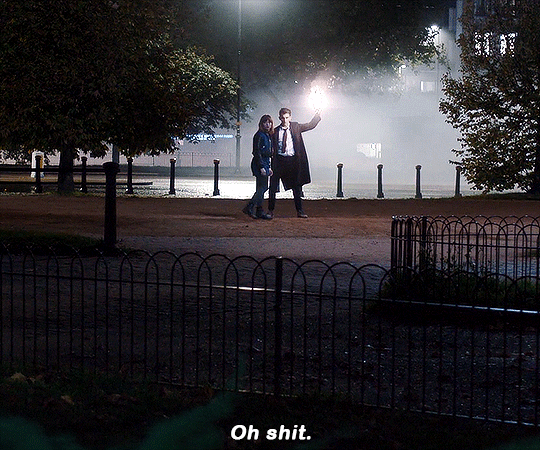
pearlcaddy's 2023 follower celebration ♡ free choice
lockwood & co. 1.02 flare scene
↳ for @youareiron-andyouarestrong
#lockwood & co#lockwood and co#lockwoodandcoedit#anthony lockwood#anthonylockwoodedit#lucy carlyle#lucycarlyleedit#locklyle#locklyleedit#smallscreensource#tvedit#flashing gif#pearlcaddyedit#pearlcaddy l&co#pearlcaddy2023#i'll still be doing the rest of the sets post-submission but since i already had psds for this it was pretty fast to make#once again my desire to make big gifs means i have to split every shot into multiple gifs#but i enjoy big gifs so it's easier to flail over microexpressions#the way she asserts this boundary and he immediately agrees to it#and then has to be so extra about taking out the flare and holding her hand#her heart eyes in 'so you'd look cool?' destroy me
795 notes
·
View notes
Text
reigen going to r/AmITheAsshole after his fight with mob
#mp100#separation arc au where everything is the same except reigen also gets cyber bullied on reddit#(idk what reddit's name would be in the mob universe... taking suggestions)#reigen skillfully dodging questions about how old his employee is and what exactly it is that they do#reigen: that is not relevant. stop asking. it doesn't matter.#reigen scrolls AITA and all of the other advice subs for entertainment but he does give really good advice sometimes#but his karma is ruined after this post bc he didn't think to use a throwaway#and now he's known as the guy who told a 14 year old his friends didn't really like him because the 14 year old asserted his boundaries
813 notes
·
View notes
Text
Also, in response to the "testosterone making people angrier" myth, I've found that, personally, testosterone has given me the self-respect to recognize and call out when my boundaries are being overstepped in ways that I wouldn't have had the courage (or, frankly even liking of myself) to have done before. This is in addition to me working on my trauma responses, but testosterone was the spark that gave me the will to do this in the first place. When I see people sae that as anger and thus is a "bad thing," I wonder how much of that is just people being uncomfortable with us... having boundaries or enforcing them, and that the response to that overstepping is labeled as aggressive anger.
Frankly, I now actually respect myself enough to care when I am being mistreated. It seems that people sometimes take that as a personal failure on my end because I don't think I deserve mistreatment.
Caveat: Anger is a fine emotion, and it is a worthy thing to recognize and honour. I find that the accusation of trans men* and trans masc* people "being angry" on testosterone is a moot point simply because it is often a false accusation which uses anger as a punishment. My issue isn't that we're "angry," but that our perceived anger is used, often, as a transphobic bludgeon to punish those who either want to transition with testosterone or who currently are, and everything in-between.
#trans#transgender#lgbt#lgbtq#ftm#nonbinary#transphobia#transphobia tw#unpopular opinion i guess but: trans man* and transmasc* anger is a fine thing and more people ought to express it without fear#basically i want to start a punk band with some other trans guys/trans guys+ who are Angry and Will Express It#like not going to lie but i had no boundaries before because i HATED myself...#...so it's pretty weird when people almost... miss that they could have taken advantage of me had i not realized my worth#like why does my Testosterone Anger say something bad about me when you MISS that you could have taken advantage of my self-hatred. like. hm#anyway. i let myself be angry now because i have realized that i deserve to express my full range of emotions#i notice that many trans people start asserting themselves way more when they transition gow they want/need to...#...and i think part of it is that many of us start to get out of the rut of feeling Horrible 24/7/365...#...so when people express they 'miss the old [you]' to me that's a red flag...#...because... do you miss that person pre-transition or do you miss their abject misery and passivity?#this might be a generalization because of tumblr's tag character limit#but i have noticed this with a few trans people when they are openly/currently transitioning#this isn't me saying that this is universal but just... something i have Taken Notice Of#and it seems weird to me that this hasn't only just happened to me because. it just feels...... gross
117 notes
·
View notes
Text


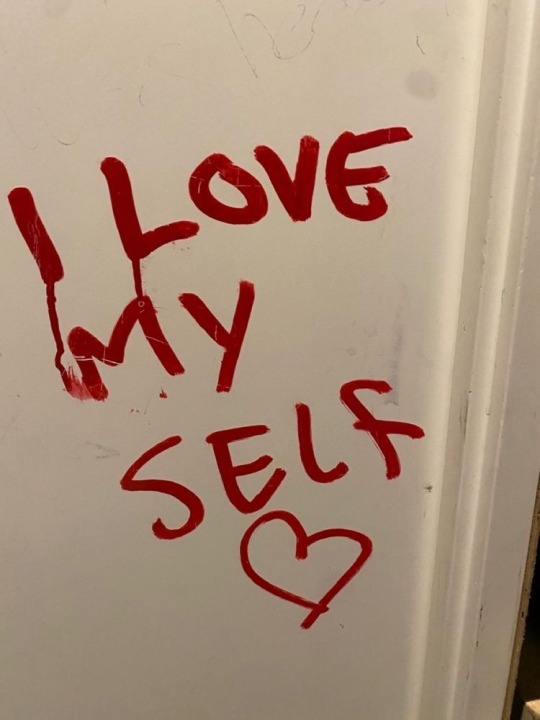

Book Review: Book 2: The Art of Everyday Assertiveness (a 9-part series by Patrick King, “Be Confident and Fearless.”)
Book one review here.
I found this book had 20% of the content from the first book so I’ve avoided putting the same things again and again in this review.
Forward identifies these overwhelming feelings as the three underlying components in emotional blackmail: fear, obligation, and guilt (FOG).
The four types of blackmail:
1. The punisher’s threat occurs when the victim receives this message from the perpetrator: “Do what I want, or you will suffer negative consequences.”
2. The self-punisher’s threat takes advantage of the victim’s sense of guilt by sending the message, “Do what I want, or I will make myself suffer negative consequences.” Often this scenario includes high drama.
3. Closely related to the self-punisher’s threat is the sufferer’s threat. Rather than the threat of self-harm, the manipulator in this situation says, “Do what I want, or I will suffer negative consequences from the outside.” Consequences are external and not self-inflicted.
4. The final form of emotional blackmail is identified as the tantalizer’s threat. Rather than threatening a negative consequence, the perpetrator sends the message, “Do what I want, and you might enjoy positive consequences.”
-
The key to avoiding victimization is by taking time and learning to recognize feelings of fear, obligation, and guilt. This can be achieved by asking a few very simple questions:
“Am I not asserting myself by my own free will? Is this truly what I want, or is there a reason related to fear, obligation, or guilt?”
“Am I acting out of anxiety or excitement?”
-
Asking for help:
1. Ask and then stop talking.
Don’t follow up your ask with things like “only if you want”, “its up to you” etc.
2. Create a win win.
When asking for something from the other person, ask yourself:
- Are their needs being considered?
- How can this request benefit them?
- Is this a good time to make such a request?
- If the tables were turned, how would I view this request?
3. Make it easy.
Do not expect people to go out of their way in order for you to request a favor. Instead of your natural inclination to hedge with “Can we meet? Only if you have time,” you can substitute it with “Can we meet? Lunch is on me at your favorite sandwich place.” The key here is to make your ask smaller than it needs to be so it will be better received, and easier to squeeze out.
4. Offer clear cut options
if you are asking for someone to watch your dog, offer to take him to their place or let them stay at your place and use your building’s gym facilities while you are out of town. Also, make sure they have a way to say no without feeling guilty in case they cannot or do not want to do what you have asked.
5. Be direct.
Don’t have any ulterior moves. Express the ask as it is in your mind.
6. Be specific
Don’t ask vague, open ended questions. Inform them where they can exactly help you.
7. If someone says no, don’t be disheartened.
-
Types of assertion:
1. Empathic: acknowledge their feelings, appreciate them but be firm with your stance.
2. Consequence: a last resort if someone has made you reach the end of your tolerance. State what they did; how it made you feel; and the consequence of them not apologising/ taking responsibility.
3. Negative feelings: describe their (unwanted/ unjust) behaviour objectively, directly and specifically. Tell them how it impacted your describe your feelings as exactly as you can. State your preferred behaviour. “When you didn’t show up at the date we had planned, I had to cancel our reservations and felt embarrassed and hurt. In the future, could you just call me if you can’t make it?”
4. Discrepancy: when something happens due to a misunderstanding, lack of follow ups or unclear inventions. “I thought we were meeting for coffee at noon. Was I mistaken?”
-
In a 2010 study published in the Journal of Personality and Social Psychology, researchers analyzed people’s reactions to selfish versus generous actions in a game about rewards. They found that instead of appreciating the generous players, these were actually as equally disliked as the selfish ones. You may have tried taking on the dirty jobs nobody else wants or paying a bar tab at a work party in the hope it would endear you to a group. This is actually likely to have the opposite effect; your extreme generosity makes people just as uncomfortable as the selfish people who make life more difficult or refuse to contribute.
-
University of Notre Dame Researchers in 2011 found that disagreeable employees earned more than their agreeable counterparts. Disagreeable men earned 18% more than agreeable men. Agreeableness is a more socially expected norm in women, but disagreeable women still earned 5% more than the agreeable women, and these agreeable women lagged far behind the disagreeable men.
-
Communication styles: figure out your pattern in order to break it:
1. Passive
- low self esteem
- Dont express opinions or desires
- Avoidant
- Anger can build up quietly over time and then erupt
- Weak eye contact
- Bad posture
- Dont understand their own needs
2. Aggressive
- verbal, physical violence
- Put their own needs before others
- Overbearing
- Intense eye contact
- Poor listeners
- Impulsive
- Criticises 24/7
3. Passive aggressive
- appear to be “fine” but are not fine inside
- Sarcastic often
- Alienate themselves
- Sabotage
4. Assertive
- speaking up for themselves
- Clear
- Direct
- Good listeners
- High self esteem
- Open, relaxed body language
- Can navigate any situation without resentment, anger or loss of control
The passive communicator says, “People walk all over me,” and “No one cares how I feel about this.”
The aggressive communicator says, “I always get what I want—whatever it takes,” and “You’re worthless; you owe me.”
The passive-aggressive communicator says, “That’s fine . . . (That’s what you think),” and “They’ll see what happens to people who cross me.”
The assertive communicator says, “We’re both entitled to respectfully express our opinion,” and “I’m responsible for myself and no one owes me anything.”
-
Before you start to apologize, stop and ask yourself two questions:
“Did I actually do something wrong?”
And if not, “Did I really want to communicate that I think I did?”
If you over apologise, ask yourself:
1. What’s the first reaction you have when someone tells you no?
2. Was advocating on your own behalf off-limits in your family? Was it encouraged?
3. When you were younger, was it acceptable to speak up and share your opinion?
4. What other major experiences shaped your outlook regarding asserting yourself and respecting authority, particularly at the workplace?
-
Confronting a dominant personality doesn’t have to be combative. Simply ask, “Are you open for feedback on this?” If they say yes, which most people will, you can start by saying, “I tend to think of these things from a different perspective.” It keeps the conversation neutral. You’re not attacking their point of view. Instead, you’re just sharing yours.
-
Dr. Beth Polin, an assistant professor of management at Eastern Kentucky University and coauthor of The Art of the Apology, defines an apology as a statement that includes one or more of six components:
1. An expression of regret: This is the actual “I’m sorry” statement.
2. An explanation: This is a clarification of what happened, not a justification.
3. An acknowledgment of responsibility: In other words, owning up to your mistakes.
4. A declaration of repentance: For example, “I truly regret what I did.”
5. An offer of repair: “Maybe I can turn this around.”
6. A request for forgiveness: “I know I messed up, but I’m truly sorry and I’m asking your forgiveness.”
-
Assertiveness action plan:
1. Write down the times in your life where you have not felt assertive (been laughed at, walked all over, taken advantage of, etc)
2. Write down how you reacted (can be good/ bad/ neutral)
3. Write down the healthy response you would’ve given in that situation
4. Write a list of what you should avoid using from your internal dialogue or with other people. Also write a list of phrases that you feel more comfortable with that are also assertive.
- the author has a full schedule/ plan for 26 days on the assertiveness action plan with exercises. I didnt include everything, but i included things that I feel I can do.
#c suite#powerful woman#ceo aesthetic#personal growth#that girl#productivity#strong women#getting your life together#feminine energy#balance#assertiveness#confidence#boundaries
266 notes
·
View notes
Text
You win if you uphold your boundaries. You lose if you cave in.
When you have high standards, you're assertive, and you don't play around with boundaries, a lot of people may think you're a b****.
And that may be uncomfortable for some of you peoplepleasers. But here's the thing.
Those same men will also secretly admire your self-respect. They may resent that your boundaries and standards exclude them from your special club, they may push back and complain and argue against them.
But ultimately, first of all you'll be protecting your peace & standards. And secondly, they will respect you more. You'll be the one that got away, you'll be the one they remember, the one they can't forget, because you stood out. It's a win-win.
Caving in to people-pleasing and rejecting your own needs & boundaries is a lose-lose situation. You're not honoring yourself, and while you'll be superficially appeasing the other person, they surely won't respect you for it. Toxic people, especially narcissists, will take what they can from you and then they'll move on to do it with others. Nobody is going to admire and clap for you for being a doormat.
#boundaries#high standards#high value woman#level up#glow up#assertivity#people pleasing#respect#self worth#confidence#articles#writings
365 notes
·
View notes
Text
Lately I’ve been struggling to find a balance between being the kind person I am while still reinforcing my boundaries…
Some say to just speak up or be assertive but as a retired people pleaser ..it has been tough
When attempting to practice assertiveness it has often felt as though I was putting on a mask over who I was. I literally felt a pit in my stomach and my tongue instantly ties..
Recently I listened to @sheissobougie’s podcast episode on boundary setting & I loved it! Completely changed my perspective on the topic
In the episode she details how questioning disrespect is one of the best ways to reinforce boundaries. Basically acting dumbfounded when anyone tries to play you lmao
I love this approach because it allows me to remain true to myself without “stepping outside my comfort zone” … yelling or doing the most when people over step just isn’t my 1st reaction … nor do I ever want it to be
However… if I need to act like a bitch… bitchy Tee will most definitely make a cameo!
#black girl tumblr#boundary issues#boundary holding#boundary setting#assertiveness#balance#thoughts#people pleaser#black girls of tumblr#black tumblr#black girl aesthetic#black blogger#black girl blogger
261 notes
·
View notes
Text
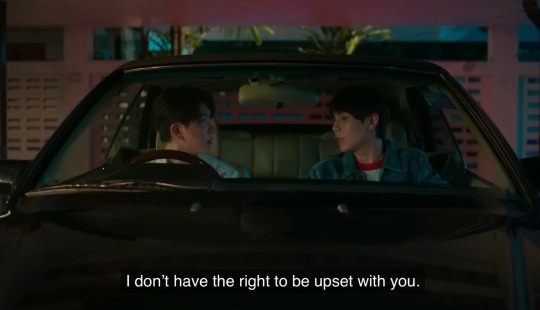



“Are you angry?” Ray
“I don’t have the right to be upset with you. Beside, I think it’s good idea if we just stopped as a one night stand.” Sand
Only Friends, episode 3
26/08/2023
(The slight tinge of regret in Ray’s face, the downward turn on his lips… as he takes a rain check to save Mew from having to sleep outside his room - and with Sand sad resignation on his face… gosh, these 2 are such excellent actors!)
#oh these 2 boys#both gone for each other but tiptoeing as they are still at the stage of getting to know each other#also I’m not surprised Sand tries yet again to assert a boundary because he knows it will just turn messy once emotions are involved#and Sand is already half way there#gmmtv series#thai bl#khaotung thanawat#first kanaphan#firstkhao#only friends the series#firstkhaotung#episode 3
71 notes
·
View notes
Text
If you make me feel unwanted, I won't message you anymore.
20 notes
·
View notes
Text
Anon wrote: Hi, I'm a troubled INFJ asking on how to find an answer for a dilemma I'm having w my family members. I don't truly hate, but I lack affection for my father and sister; caring for them doesn't bring me comfort.
I grew up in a poor family. From a young age, I witnessed my father indulging in gambling and abusing my mother. Our conversations at home were often filled with yelling and swearing. My mother, despite her kindness and sacrifice, couldn't restrain my father's behavior (I believe my mom is ISFJ). We endured many nights of fear and tears as my father gambled away our livelihood. My father never cared about our education or well-being; his selfish pursuits always came first. He never provided for us financially, spending all his earnings on gambling and accumulating debt.
My sister dropped out of school early and never held a stable job. She is stubborn and refuses to listen to advice. Despite my mother's efforts to support her, my sister remains dependent and directionless. As for me, I finally completed university and secured a stable job despite tons of obstacles that could have made me give up halfway. I contribute financially to support my family, paying off debts and even purchasing land and building a house for my sister. However, the lack of love and warmth in my family has left me feeling lonely and disconnected.
I fear marrying someone like my father and becoming trapped in a cycle of misery. At home, I fulfill my responsibilities but keep my distance emotionally. I provide for my family's needs, but I find myself only caring for my mother, not my father or sister. I wonder if I'm selfish or afraid of responsibility for feeling this way. How do I find an answer to this question myself?
---------------------
Growing up in a poor family isn't the issue. The real issue is that you grew up in an abusive environment and thus haven't learned what healthy relationships should look like.
What exactly do you mean when you use the word "responsibility"? Okay, common sense dictates that you are responsible for yourself and the choices you make. But are you responsible for your father or sister and the choices they have made? Do you have a responsibility to fix their mistakes and compensate for their bad behavior? Are you solely responsible for keeping the family together when half of the members don't care?
Yes, it's important to be a responsible person if you want to feel like you have good moral character. However, taking on more responsibility than is reasonable for a single person to shoulder is a serious problem in several ways:
1) It is damaging to your well-being. Responsibility comes with stress, and stress has a deleterious effect on both physical and mental health. Taking on the responsibilities of others compounds stress dramatically. Your capacity to handle stress is finite, which means that you will eventually feel burn-out or experience a mental breakdown or lash out destructively (Se grip).
2) It makes you ripe for mistreatment. Lack of healthy boundaries is a common symptom of Fe overindulgence in INFJs, i.e., it is a problem that needs to be remedied as part of your type development. Taking responsibility for someone else's decisions means that their problems become your problems. If you allow this to happen again and again, you are broadcasting to the world that you are an easy target for manipulation and exploitation. All they have to do is activate your guilt and you'll take care of whatever they throw at you. You'll become a doormat at best and a victim at worst.
3) It rewards other people's bad behavior. Facing up to negative consequences is essential for human learning and improvement. When you take responsibility that should rightfully belong to someone else, you are essentially shielding them from the consequences of their behavior. When there is always someone else to clean up messes for them, what incentive do they have to clean it up themselves? If anything, they are incentivized to make even bigger messes. This makes you complicit in their bad behavior because you are enabling it. When you or your mother are excessively "supportive", you might actually be making this unhealthy family dynamic worse.
Your question implies that you have a duty to always be caring and loving to everyone in your family no matter what. Why do you hold this belief? Do you come from a culture that tells you family is everything and going against them is always a betrayal? There's nothing I can say to help if this is truly what you want to believe.
A healthy family should have a sense of equality and equity. Every member of the family should contribute a fair share. Every member of the family should care enough to only take what is needed (as opposed to take advantage of kindness). Every member of the family should get enough love and support.
When one member of the family behaves in a way that is harmful to the other members, they no longer deserve the privileges of membership. Social "responsibility" shouldn't be one-sided. A relationship is like a social contract where both parties agree to terms and conditions that aim to keep the relationship healthy and thriving. When one party intentionally breaks the contract over and over again, you no longer owe them the duty of carrying out your portion of the contract. Is it reasonable to force yourself to like/love someone who has repeatedly shown that they don't like/love you? Wouldn't this amount to torturing yourself?
Perhaps you think it makes you a bad person for turning on family. Nobody is saying that you have to do bad things to your father and sister or treat them cruelly. The point being made here is that you have a right to be treated with respect and you deserve care as well. And when people don't treat you with respect and care, you have a right to protect yourself from their harmful behavior by pulling away from them physically and emotionally. In other words, you have a right to your personal space, you have a right to set rules of social engagement, and you have a right to end any interaction/relationship that hurts you. Having healthy boundaries means being assertive in advocating for your own needs and well-being.
If you don't learn to set healthy boundaries in your family, this problem is very likely to carry over into your friendships and romantic relationships. Do you want this feeling of loneliness to come up again and again? If not, what you need to do is learn to seek love from the right sources. Family or not, do not hope or beg for a person to reciprocate your love when they have shown you that they are not capable of love. This is part of what it means to have self-respect.
13 notes
·
View notes
Text


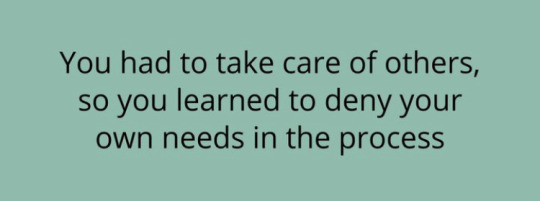



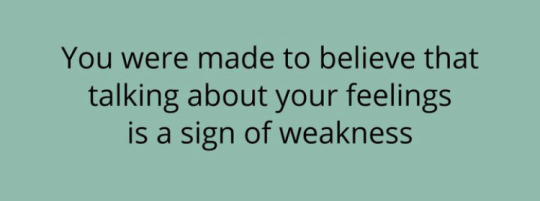

435 notes
·
View notes
Text

17 notes
·
View notes
Text
I think about how so many resources for dealing with a hoarder house situation online come from a perspective of hatred and frustration for the person(s) perpetuating the hoarder situation in the household, and I think to myself. Would perhaps people have better results by treating the hoarder with a modicum of respect and applying harm reduction strategies to the situation? Like with addiction?
The household we live in teeters in a weird spot where multiple rooms (living room, porch, back room, guest room, upstairs bathroom) are slowly being overtaken with storage boxes.
It's not a filled-to-the-brim hoarding situation yet, but if I'm not actively organizing and cautiously removing items, it came become a really frustrating environment to live in. Blocked closets, hallways you have to squeeze through, stuff like that.
Bu I've been trying to find resources for helping someone out of a hoarding mindset, and so much "advice" approaches the person having the mindset with distaste.
"The problem with hoarders is that they don't think it's a problem!"
That's usually because they see the hoarding as a solution to some other problem, like resource insecurity, or compensating for memory loss via keepsakes. Maybe we should take those fears seriously and help them dismantle it all on their own terms?
#hoarding#decluttering#cleaning#look the fact that i can move stuff and judiciously get rid of stuff now makes this situation WAY better than it used to be#and part of that was yes asserting some boundaries#but another part of it was . . . not being a dick to the person who is filling the house with stuff#approaching them gently with our own concerns like#hey i'm having trouble navigating this hallway can i move some stuff#hey i noticed this thing was broken to the point of unrepairability can i junk it#you want to keep a piece from the broken thing? sure! at least that's less stuff to deal with than before#like we still have the issue of more stuff coming into the household from spending trips but baby steps; we can work on that next#part of the thing is that people don't confront the situation until it gets fully unlivable for them#so it's like. snap. from the hoarder's perspective you have gone from zero to a hundred#and from your perspective you have been drowning in stuff for so long and your thrashing instincts are kicking in#but you have to take it piece by piece; not all at once
14 notes
·
View notes
Text
It might be hard to assert yourself after putting your head down for so long, and it might be harder for other people to accept it. It's not that you became an awful person for not putting up with people's shit, you have changed for the best, but some people will make you feel like prioritizing your health is unreasonable because they expected you to tolerate their behavior and never put up any boundaries. They might have learned what to expect from you, to have high expectations and to believe you would never really say "no" to them, and it comes as a shock to them. Yet, it doesn't mean you should keep up doing what they expect from you, and it doesn't mean you are being a bad person to them just because they never thought you would get tired of being pushed. It doesn't mean you should go back to the way you were. It doesn't mean you have to tolerate anything to avoid conflict. Boundaries assert to others how they can be in your life in a healthy way, and if they don't want you to change how much access they have to you, then maybe it's not time to put your boundaries down, but to make them clearer and to make sure you maintain them. And if they want to have so much control over you, then maybe it's time to walk away from someone who thinks they can do whatever they want to you.
#self-worth#boundaries#limits#relationships#toxic relationships#assertiveness#original writing#learning how to say no
222 notes
·
View notes